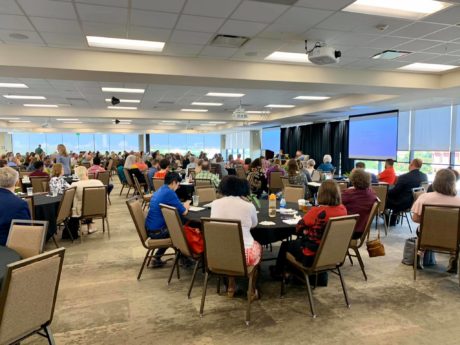
October 2-4, the newly-named Baylor Collaborative on Hunger and Poverty hosted the Together at the Table Hunger and Poverty Summit in Waco. The group formerly known as the Texas Hunger Initiative (THI) hosted hundreds of participants from across Texas and the nation for a three-day learning event. EHF staff members and representatives from St. Philip’s-Hearne, Christ Church-Temple, St. James-Houston, Holy Comforter-Angleton (Peach Tree Farmer’s Market), and El Buen Samaritano of Austin all attended the event.
EHF has partnered with the work of Baylor Collaborative on Hunger and Poverty around the state to support the local hunger initiatives of our congregations. The group conducts university-based research to determine what programs work best, and provides the support and expertise to coordinate work in communities and put those programs into action. The conference brought together nonprofits and congregations working on hunger-related work throughout Texas.
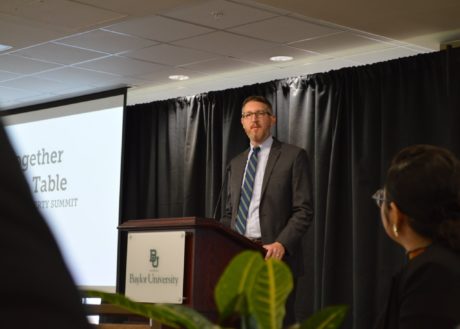
The conference held 40 workshops on a variety of areas impacting hunger; Child Nutrition programs, Community Engagement, Coalitions, Faith Based approaches, Research, Benefits Access, Policy, and National Organization work.
There were also multiple workshops in each of these hunger-related areas from convening and launching summer programs in rural areas to alleviating food insecurity in the U.S.
Abigail Zimmerman, of St. Alban’s Episcopal Church, Waco, co-led a workshop on increasing engagement with student leaders to reduce childhood hunger.
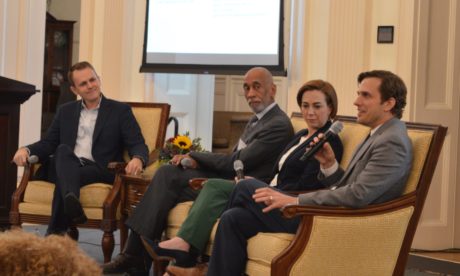
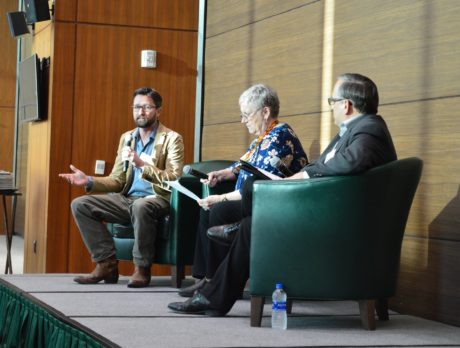
The plenary sessions included a welcome by the Assistant Commissioner of the Texas Department of Agriculture, followed that evening by an engaging and heart-rending panel on the current Border Crisis facilitated by Elaine Hernandez, regional director for the Baylor Collaborative on Hunger in Mc Allen. The panelists were Rev. John Garland of San Antonio Mennonite church and Victor Hinojosa, a political science professor at Baylor University. Both panelists spoke about their direct experience with asylum seekers and the difficulties they now face entering the U.S.
The plenaries ended with a final panel on Thursday with doctors highlighting the connection between poverty, community, and health. Dr. Valerie Smith used EHF’s signature phrase by telling the hundreds gathered, “It’s health not healthcare!” and crediting EHF with placing the emphasis on the social determinants of health. The panelists gave examples of how poverty restricts access to good, healthy, food choices and leads to bad medical outcomes. They also stressed the importance of working with and listening to the community to determine how to enact strategies to end hunger.
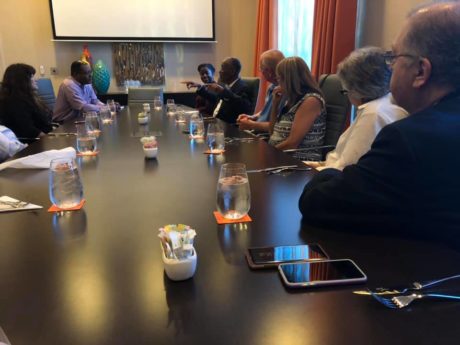
After the official conference was over, EHF hosted a dinner for the participants and partners from the Episcopal Diocese of Texas to discuss next steps. The group shared their current work and their takeaways from the conference.
Several themes emerged:
-
1) Socialization – this work is about bringing us in relationship with other people. We should listen to them to determine how best to work in the community.
2) Collaboration – our ministries can be an opportunity for collaboration with new organizations, churches, and groups.
3) Demonstration and Information – Our food ministries can be enhanced by demonstrating how certain foods can be cooked and by showing why the foods are good for our health. Providing demonstrations and the recipes for new foods can also engage people in conversation which builds relationships.
The group also said they would like to continue to stay in touch and support each other’s work around the diocese. EHF staff said they would look for ways to convene the hunger group in the future. After the meal and conversation, the group departed with new ideas, new tools, and renewed energy to engage their communities around hunger.
As EHF continues our journey exploring poverty and food insecurity, we’d like to hear from other congregations doing this work or those interested in joining the conversation–please contact us!